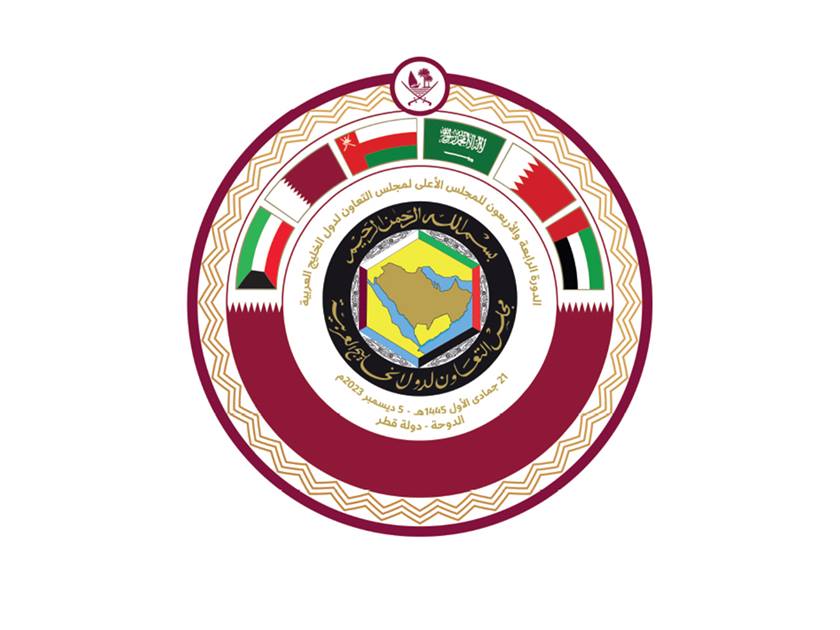Doha, December 04 (QNA) - Qatar is set to host the 44th Session of the Gulf Cooperation Council (GCC) Supreme Council on Tuesday, which will discuss several important issues, notably the completion of the Gulf Electricity Interconnection project, which has seen rapid progress in various stages over the past few years, the most prominent of which is the GCC-Iraq Electrical Interconnection Project.
The Gulf Electricity Interconnection Project represents an aspect of cooperation among the region's fossil fuel-rich countries, aimed at supporting network stability during peak times. The project has expanded to other Arab countries, starting with Iraq, with aspirations to extend to Europe. This comes amid expectations of a slowdown in the growth of electricity demand in the GCC countries until 2025, opening opportunities for the region to export surplus electricity.
One of the key benefits of linking several international electrical networks is the reduction in capital investments needed to meet demand, especially during peak times. This increases safety and reliability and also allows for the export of surplus electricity in the network. On June 8, the GCC-Iraq Electrical Interconnection Project commenced, marking the beginning of the GCC countries' efforts to connect with other nations.
The idea of implementing Gulf electricity interconnection dates back to December 1997, when the GCC Council decided to implement it during its 18th session. In 2001, the GCC Interconnection Authority (GCCIA) was established to oversee the project's creation, operation, and maintenance.
By the end of 2005, specifically in November, Saudi Arabia, Kuwait, Qatar, and Bahrain signed contracts to initiate the first phase of the GCC electrical interconnection project, with an investment cost exceeding USD 1 billion. The actual operation began about four years later, in July 2009.
The second phase included enhancing the efficiency of the electricity networks in the UAE and Oman, which was completed in 2006. The third phase was implemented in two parts, with the first concluding on April 20, 2011, by linking the UAE's network to the GCC interconnection grid, bringing the number of electrically connected countries in the region to five.
The second part of the third phase involved linking Oman's network through the UAE's electrical grid, officially joining the GCC interconnection grid in November 2014, thus linking all GCC countries.
In 2009, an agreement to regulate the relationship among the Member States participating in the Electricity Interconnection Project was ratified and put into effect on March 23, 2009. Based on this agreement, the "Advisory and Regulatory Committee on Electricity Interconnection" was formed to organize the works of the GCCIA.
Since its inception, the Gulf Electricity Interconnection Project has enhanced the energy security and reliability level of the Gulf's electrical grid by sharing production capacities and operational reserves. It has provided immediate support during emergencies, avoiding power outages in the GCC's electrical grids and handling increased loads.
The project has yielded annual savings of USD 200-300 million annually, with cumulative savings of approximately USD 3 billion since the commencement of operations.
The Gulf Electricity Interconnection network spans approximately 1,000 kilometers from Kuwait in the north to the south of the Arabian Gulf.
According to the International Energy Agency (IEA), GCC countries, led by Saudi Arabia, Oman, and the UAE, along with Iraq, recorded the highest increases in electricity consumption in the Middle East during 2021 and 2022.
The electricity interconnection between Iraq and the GCC countries is one of the solutions adopted by Baghdad to address the electricity sector crises. This includes frequent outages due to various reasons, notably the decline in Iranian gas supplies, causing many stations to halt operations.
On June 8, 2023, the GCC-Iraq Electrical Interconnection Project commenced, representing the first electrical connection with countries outside the GCC. The first phase involves constructing lines from Al-Wafra station in Kuwait to Al-Faw station in southern Iraq to transfer 500 megawatts, with an investment cost of USD 228 million. The first phase is expected to be completed by the end of 2024.
The GCC-Iraq Electrical Interconnection Project, funded by the Qatar Fund For Development (QFFD) and the Kuwait Fund for Arab Economic Development (KFAED), is set to be completed by the end of 2024. This groundbreaking initiative, the first of its kind outside the Gulf Cooperation Council (GCC) electrical system, aims to supply approximately 500 megawatts per hour of electricity to southern Iraq.
The significance of the GCC-Iraq Electrical Interconnection Project lies in deepening the integration, interconnectedness, and cooperation between the GCC states and Iraq. This project also strengthens the Gulf Electricity Interconnection Project, one of the key infrastructure connectivity projects endorsed by Their Majesties and Highnesses the GCC leaders to support economic and social development efforts in the GCC countries.
The project's implementation, announced following an agreement signed in July 2022, has seen significant progress with the completion of the "Faw 1" and "Faw 2" lines in southern Iraq. The next phase involves establishing its link to Kuwait.
The establishment of Kuwait's Al-Wafra station, in collaboration with the GCCIA, expands Kuwait's electrical connectivity to accommodate significant changes in electrical loads and increases in electricity generation through both traditional and renewable energy sources.
Al-Wafra station in Kuwait is scheduled to provide a capacity of up to 3,000 megawatts to support the stability of the Kuwaiti electrical grid. The GCC-Iraq Electrical Interconnection Project also involves constructing a main connection station at Al-Wafra and dual overhead lines to connect this station with Al-Fadhili station in Saudi Arabia, and the conversion of a dual overhead line from Al-Zour to Al-Wafra.
Furthermore, it includes constructing overhead lines from Al-Wafra to the Sabah Al-Ahmad "Z3" and "Z4" stations for connectivity with the Kuwaiti network and a 400-volt aerial line network with Iraq.
The GCC-Iraq Electrical Interconnection Project represents one of the Gulf's steps towards reaching the European market and exporting electricity to it, including an interconnection with Turkiye.Moreover, an electrical interconnection between Iraq and Saudi Arabia is also anticipated, following the signing of an executive memorandum in July 2022. Technical studies are underway to determine connection points, line routes, and the economic and technical feasibility of this project.
The initial plan for the connection includes constructing a 435-kilometer electric line between the Saudi Arar port and the Yusufiya station near Baghdad, with a capacity of 1,000 megawatts and a voltage of 400 kilovolts.
Iraq is also currently working on a Jordanian-Iraqi electrical interconnection project as part of its plan to resolve the country's electricity sector crisis. The first phase involves laying a 330-kilometer electric line extending from Risha power plant in Jordan to the Al Qaim district in Iraq.
The project's second phase is expected to provide capacities of up to 500 megawatts and a third phase with a capacity of 900 megawatts. Iraq emphasizes that the connectivity with Jordan aims to completely end the ongoing power outages in some western regions of Iraq since 2014, attracting investments to those areas.
Additionally, the line will support the operation of phosphate factories in the Akashat area in Anbar province and bolster the industrial zone project between Iraq and Jordan.
Year after year, the strategic Gulf Electrical Interconnection Project has provided technical and economic benefits to the GCC countries. It has supported emergencies, preventing power outages through immediate support during emergencies by transferring the required energy across the network, which spans approximately 1050 kilometers from Kuwait to Oman. Since its operation, the project has facilitated around 2700 support cases and achieved annual savings ranging from USD 200 million to USD 300 million for the GCC countries, amounting to cumulative savings of approximately USD 3 billion.
The Gulf Electrical Interconnection Project aims to connect the GCC, the Eastern Mediterranean, and North Africa with Europe from the west and north and with South and Central Asia from the east, forming a transcontinental network. This network positions the Middle East as a central hub and the Gulf region as the nucleus, paving the way for a global energy network. (QNA)


